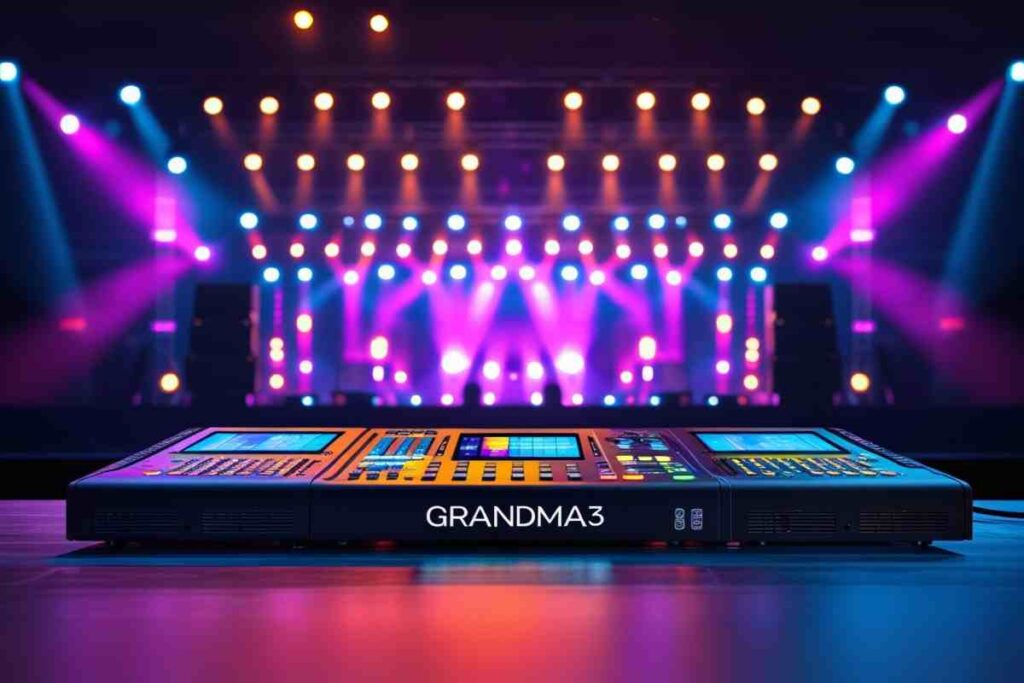The direct answer is no, most companies do not strictly require certification, but they often prefer it.
Many hiring managers want proof that a technician can confidently run a show using grandMA3. Certification provides that proof. For large scale tours, television broadcasts, or festivals with high budgets, some employers even list certification as a requirement in their job descriptions.
For smaller productions, experience and a strong portfolio may be enough. Still, certified operators often get more opportunities and higher pay.
Why Certification Matters for Professionals
Even if certification is not mandatory, it offers several advantages:
Industry Recognition
grandMA3 is known globally as a professional lighting console. Having a certificate shows that you have completed formal training and understand its core features.
Hands-On Practice
Certification programs include guided practice on real consoles. This prepares operators for high-pressure live environments.
Career Growth
Certified technicians often receive better freelance rates and are more likely to be chosen for international tours. Many users report that certification opened doors to bigger projects.
Competitive Edge
When applying for jobs, certification helps you stand out from others with similar experience levels. Employers see it as a reliable method of confirming your technical knowledge.
What Do grandMA3 Certification Programs Include?
Certification programs are usually taught by MA Lighting trainers or authorized partners. While course content may vary, most cover:
- Console hardware overview (faders, encoders, connections)
- Software basics such as patching, fixture profiles, and preset pools
- 3D visualization and pre-programming
- Cue and sequence building for live shows
- Networking in multi-user environments
- Timecode integration with SMPTE or MIDI
- Backup, file management, and show replication
At the end of training, participants usually receive a digital certificate. This certificate can be verified by employers during the hiring process.
How Employers Evaluate Lighting Professionals
Employers often look at both certification and experience. Here’s a general breakdown of expectations:
| Career Level | Certification | Console Hours | Portfolio | Live Experience |
|---|---|---|---|---|
| Entry-Level | Preferred | 100–300 | Optional | Limited |
| Mid-Level | Strongly Preferred | 500–1000 | Recommended | Moderate |
| Senior | Often Required | 1000+ | Required | High |
This shows that while certification is not the only factor, it is a strong advantage, especially for higher-level roles.
Alternatives to grandMA3 Certification
Not every lighting professional focuses only on grandMA3. Depending on career goals, operators may also pursue certifications in:
- ETC Eos Family
- Chamsys MagicQ
- Hog 4 by High End Systems
- Vectorworks (for lighting design and plotting)
- Disguise (for video and media servers)
Still, grandMA3 remains the most in-demand console, especially for global tours and arena shows.
How Much Does grandMA3 Certification Cost?
Costs vary depending on the provider and region. Official MA University sessions are often free or low-cost. However, third-party courses at training schools or academies may charge between a few hundred to several thousand dollars.
Many professionals say the investment pays off because certified operators usually secure better-paying jobs.
Is Experience More Important Than Certification?
For many employers, the ideal candidate has both certification and hands-on experience. Certification shows structured training, while real-world hours prove you can handle live situations.
A reliable method is to build a portfolio of show files and projects alongside certification. This combination demonstrates both theoretical and practical knowledge.
Steps to Get Started With grandMA3 Certification
If you’re considering training, here’s a simple path to follow:
- Learn the Basics: Download the free grandMA3 software and practice on your own.
- Take Online Tutorials: Many users recommend starting with video guides to understand patching and cue building.
- Register for Training: Visit the official MA Lighting website and check for upcoming certification sessions.
- Build a Portfolio: Document your projects and keep copies of your show files.
- Gain Experience: Volunteer or freelance in local productions to apply your skills in real-world settings.
This step-by-step approach ensures you are prepared both for certification and for professional opportunities.
Conclusion: Do Production Companies Require Certified in GrandMA3?
Production companies do not always require certification, but it is becoming more common in large-scale and international productions. Certification boosts your credibility, increases job opportunities, and often leads to better pay.
For anyone aiming to build a long-term career in lighting design or operation, getting certified in grandMA3 is a smart investment.
FAQs
Do you need certification to work with grandMA3?
No, certification is not always required, but it is strongly preferred by many production companies. It helps operators stand out and shows proof of technical skills.
How long does it take to complete a grandMA3 certification?
Most official training sessions last a few days, while advanced courses can take a week or more. The length depends on the level of training and provider.
Is grandMA3 certification worth the cost?
Yes, certified operators often secure higher-paying jobs and more consistent work. Many professionals report that the return on investment is clear within a few projects.
Can you learn grandMA3 without certification?
Yes, you can practice using the free software version and online tutorials. However, certification provides structured learning and official recognition, which many employers value.
Which other certifications are useful for lighting professionals?
Besides grandMA3, certifications in ETC Eos, Chamsys MagicQ, and Vectorworks are also valuable. These expand your skill set and make you more versatile in the industry.





